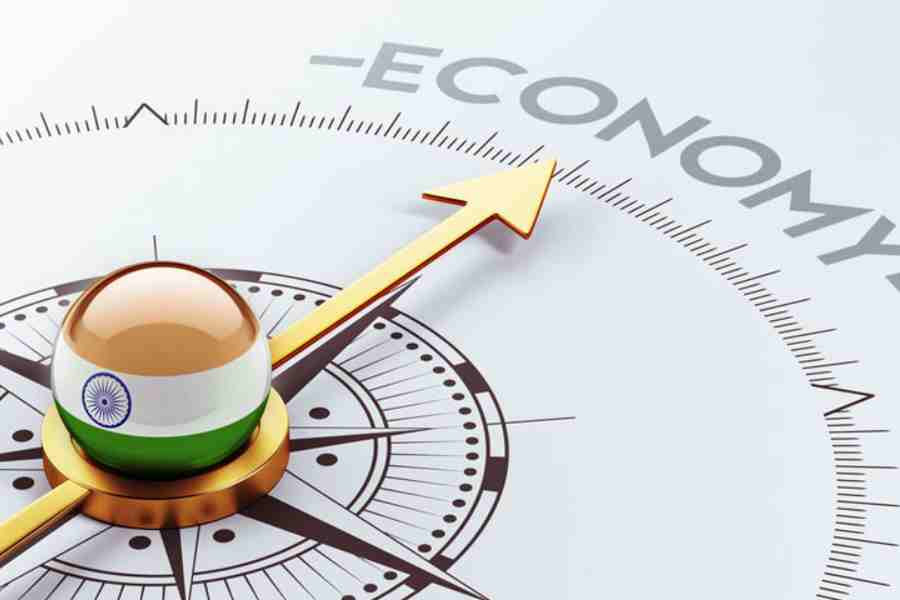The World Bank on Tuesday raised the growth forecast for the Indian economy to 7 per cent from an earlier projection of 6.6 per cent in the current fiscal, helped by recovery in the agri sector and pick-up in rural demand.
This is in line with projections by the International Monetary Fund (IMF) and Asian Development Bank (ADB). Both multilateral funding agencies have raised their forecast to 7 per cent for the financial year ending March 2025.
According to Economic Survey, the country's real gross domestic product (GDP) will grow at 6.5-7 per cent in 2024-25. However, the Reserve Bank of India estimates a higher 7.2 per cent for the current financial year.
It is to be noted that the World Bank has raised the GDP forecast by 40 basis points from earlier estimates of 6.6 per cent for FY25 released in June.
An increase in GDP forecast is supported by improvement in monsoon, private consumption and rising exports, World Bank senior economist Ran Li said.
The growth rate of India, which accounts for the bulk of the South Asia region, is expected to remain strong at 7 per cent in 2024-25, the World Bank said in the India Development Update.
"Amid challenging external conditions, the World Bank expects India's medium-term outlook to remain positive. Growth is forecast to reach 7 per cent in FY25 and remain strong in FY26 and FY27," it said.
With robust revenue growth and further fiscal consolidation, it said, the debt-to-GDP ratio is projected to decline from 83.9 per cent in FY24 to 82 per cent by FY27.
The current account deficit is expected to remain around 1-1.6 per cent of the GDP up to FY27.
India's robust growth prospects, along with declining inflation rate will help to reduce extreme poverty, said World Bank's country director Auguste Tano Kouame.
"India can boost its growth further by harnessing its global trade potential. In addition to IT, business services and pharma where it excels, India can diversify its export basket with increased exports in textiles, apparel, and footwear sectors, as well as electronics and green technology products," he said.
Recovery in agriculture will partially offset a marginal moderation in industry, it said, adding that services will remain robust.
Rural private consumption will recover, thanks to the expected recovery in agriculture, the World Bank said.
India Development Update (IDU) stressed that to reach its USD 1 trillion merchandise exports goal by 2030, India needs to diversify its export basket and leverage global value chains.
It can meet the target by reducing trade costs further, lowering trade barriers, and deepening trade integration.
"With rising costs of production and declining productivity, India's share in global apparel exports has declined from 4 per cent in 2018 to 3 per cent in 2022," according to Nora Dihel and Ran Li, senior economists and co-authors of the report.
To create more trade-related jobs, India can integrate more deeply into global value chains that will also create opportunities for innovation and productivity growth, they said.
The global trade landscape has witnessed increased protectionism in recent years. The post-pandemic reconfiguration of global value chains, triggered by the pandemic, has created opportunities for India.
The report emphasises that India has boosted its competitiveness through the National Logistics Policy and digital initiatives that are reducing trade costs.
However, it said, a resurgence in protectionist measures, including tariff and non-tariff barriers could limit the potential for trade focused investments, it said.
Recent Free Trade Agreements (FTAs) with countries such as the United Arab Emirates (UAE) and Australia signify a move towards preferential agreements.
However, it said, India does not participate in mega trade blocks, such as the Regional Comprehensive Economic Partnership (RCEP), despite clear trade potential upsides.
Except for the headline, this story has not been edited by The Telegraph Online staff and has been published from a syndicated feed.











